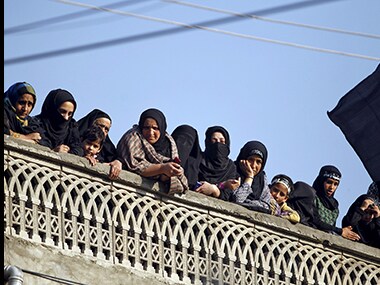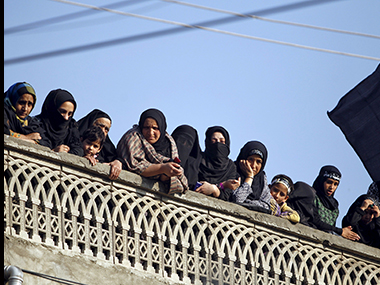On 7 October the Central government filed an affidavit in the Supreme Court opposing practices like triple talaq and polygamy. The Government reasoned that these laws should be struck down as a measure towards gender equality. Needless to say this has caused concern among minority communities with reference to the status of their personal laws. The BJP promised a Uniform Civil Code and this affidavit is seen as one step towards that. The Constitution as part of its Directive Principles of State Policy also calls upon the state to endeavour to bring in a uniform civil code. When the coming of British administration, the court systems underwent a radical shift and a modern judicial system was established in India. There was a common and uniform law of crimes that was established with the enactment of the Indian Penal Code in 1860 and this was followed by the enactment of various legislation, whose primary purpose was to make the laws uniform across the territory of India. However, this move towards uniformity did not translate to a harmonisation of personal laws and people continued to be governed by the religious laws applicable to them as was the case prior to British administration. However, to facilitate inter-religious and inter-caste marriages, a secular personal law to some extent was also enacted. The Special Marriage Act of 1954 which repealed the Special Marriage Act of 1872 provides for the solemnisation and dissolution of marriages for people of two different faiths and people of the same faith. There is the Indian Succession Act of 1925 that provides for the general law of succession. The Guardian And Wards Act of 1890 provides for custody and guardianship of minor children. [caption id=“attachment_3039924” align=“alignleft” width=“380”]  Representational image. Reuters[/caption] These special laws, though they appear secular do not allow a person in India to escape the baggage of personal law and in some cases also make it hostile for a person to choose to abide by these special laws. Section 21 of the Special Marriage Act of 1954 provides that the Indian Succession Act, 1925 will apply to the property of any person who was married under the act and excludes the personal law. However, in 1976 there was an an amendment inserting 21A, which had the effect of continuing the application of personal laws so far as they concerned two Hindus who had solemnised their marriage under the act. Till the 1976 amendment, Hindus who married under the act were expelled from any undivided family. The Act by it’s very scheme is hostile to the idea of persons who profess the same faith from opting out of the personal laws that apply to them. In the absence of Section 21A of the Special Marriage Act, 1954 any two Hindus who got married under that law would effectively be opting out of the personal law applicable to them in so far as Marriage, Succession, Custody and Divorce are concerned. Two Non-Hindus and Hindu and a Non-Hindu who get married even today under this Act, effectively can opt out of the regulations of personal law so far as it governs them. The deletion of Section 21A would by itself create an opt-in uniform civil code across the country whereby any citizen could opt out of the personal laws governing them. Therefore India’s secular law to the extent it sill exists is an opt-in system. Parties are by default governed by their personal laws but can choose not to be by opting into the secular system. The question now is, should the secular law be an opt in or an opt out. The Uniform Civil Code in India would be a right step forward in promoting national harmony and social cohesion. It would make all persons be subject to one governing law. However, the existence of a Uniform Civil Code need not be in direct opposition to the rights of communities to govern their own affairs. Secularism prevents the state from recognising or interfering in matters where it concerns religion, but it does not necessarily mean that the communities would not have the ability to govern themselves by way of contract. In an opt out situation, two parties would be governed by the secular law, unless they have expressed their agreement to be governed by their personal laws. Making the governing law a question of agreement would go a long way to address concerns that minorities may have. In the United Kingdom, which has a secular law applicable to all, there is a body known as the Muslim Arbitration Tribunal which operates like any other arbitration body. Except, this body helps Muslim couples and Muslim parties resolve their disputes using arbitration governed by Sharia. This does not amount to courts determining or applying personal laws, but the parties choosing a third party arbitrator to decide the dispute. The tribunal has no power to grant a civil divorce, but can grant an Islamic divorce to satisfy the religious requirements of the community. If India moves to a Uniform Civil Code, it may be beneficial to allow parties to mediate/arbitrate familial disputes and then present the decree for confirmation to the court. The court while confirming the decree can take into account the public policy prevailing and the interests of the children if any. However, this resort to religious law can only happen under the opt-out if both parties consent to it , either at the time of marriage or at the time of divorce. Further, there can be a provision, that persons who want their estate administered in accordance with religious laws, make and register wills to that effect allowing for their religious faith to be preserved. India has the basic frameworks of a secular personal law which can be harmonised to form a Uniform Civil Code. However, the move to a Uniform Civil Code need not come at the cost of persons giving up their right to govern themselves according to their religion. It’s time India shifts from an Opt-in to an Opt-Out as far as religious personal law is concerned and make the secular law the default law of the country.
On 7 October the Central Government filed an affidavit in the Supreme Court opposing practices like triple talaq and polygamy.
Advertisement
End of Article


)

)
)
)
)
)
)
)
)



